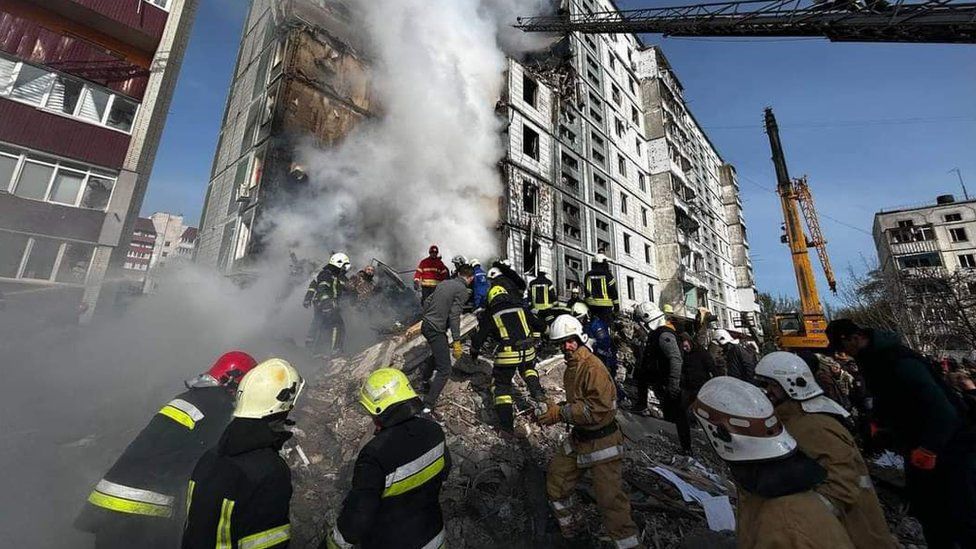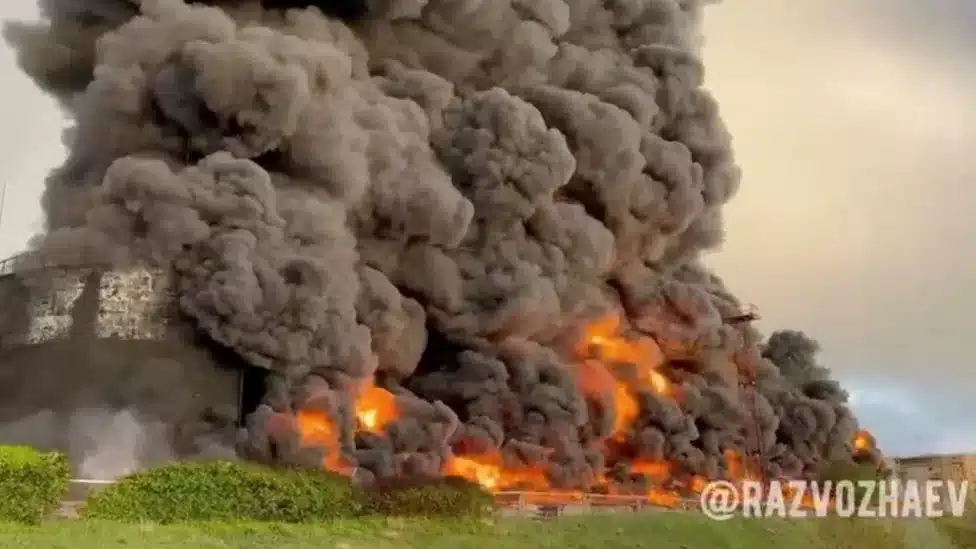Local authorities have made claims that a drone attack in Crimea under Russian authority started a large fire at an oil store.
Social-media footage showed flames billowing from the site in Sevastopol, Crimea’s main city, early on Saturday.
The fire was later put out and no-one was hurt, the Moscow-appointed regional governor said.
On Friday Russia launched a wave of air strikes in cities across Ukraine, killing at least 25 people. It was the first such attack in months.
The Crimean peninsula, which was annexed by Russia in 2014, is home to the main naval base for Moscow’s Black Sea Fleet.
“According to preliminary information, [the fire] was caused by a drone strike,” Governor Mikhail Razvozhayev said on the messaging app Telegram.
It comes five days after Russian officials said they had fended off a drone attack by the Ukrainian military in the same area. Crimea has come under repeated attacks since the start of the war in Ukraine.
Friday’s Russian barrage included a strike on a block of flats that killed 23 people – including four children – in the central Ukrainian city of Uman.
And a woman and her three-year-old daughter were killed in the city of Dnipro.

Kyiv was also targeted for the first time in 51 days. There were no reports of casualties in the capital.
Twenty-one out of 23 missiles and two drones were shot down by Ukraine’s air defence system, officials said.
The Russian defence ministry said its military had targeted Ukrainian army reserve units. Moscow has previously said it does not deliberately target civilians, but thousands have been injured and killed across Ukraine since Russia’s invasion.
Ukrainian President Volodymyr Zelensky said the attacks showed further international action needed to be taken against Russia.
“Evil can be stopped by weapons… And it can be stopped by sanctions – global sanctions must be enhanced,” he said in a tweet on Friday.
The attacks come as Ukrainian forces say they are ready to launch a military offensive with new equipment supplied by Western allies.
Russia has struggled to make headway in a winter offensive, including a 10-month battle for control of the strategically important city of Bakhmut.

